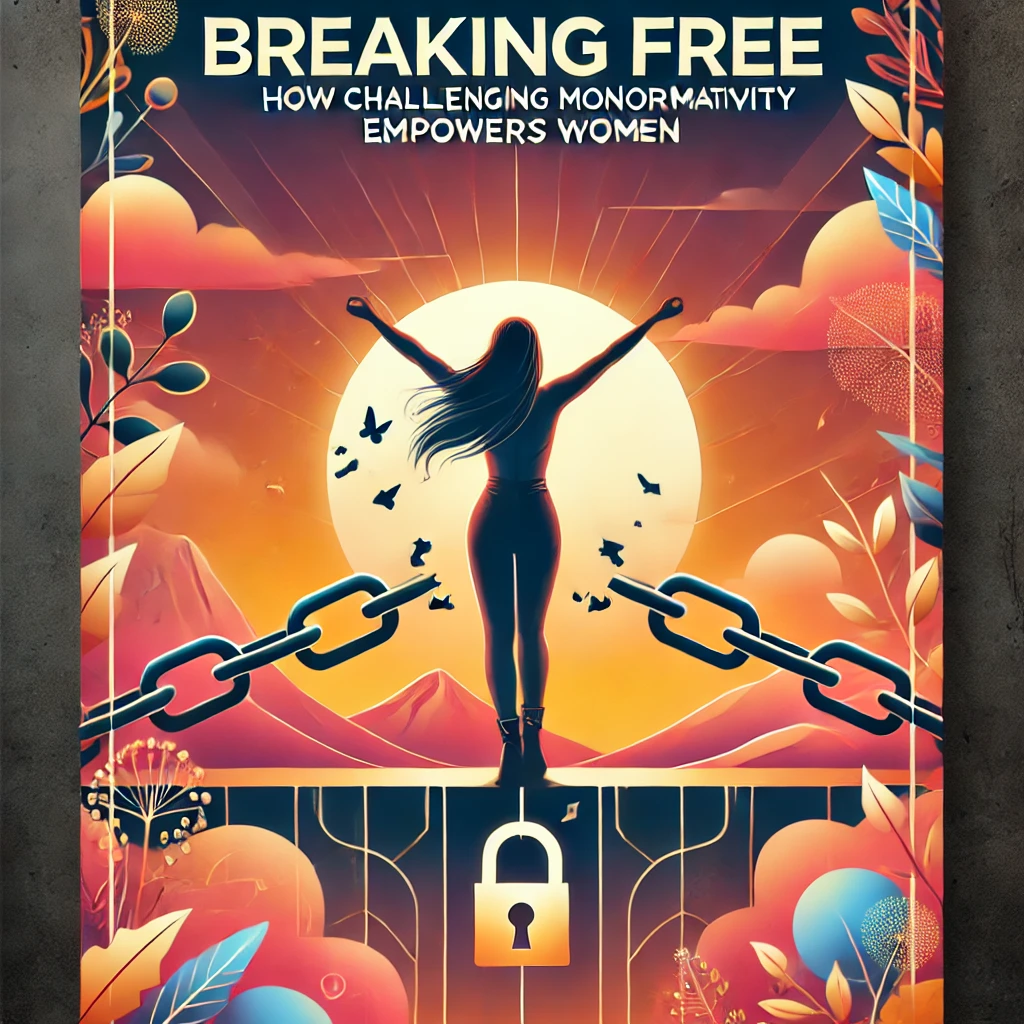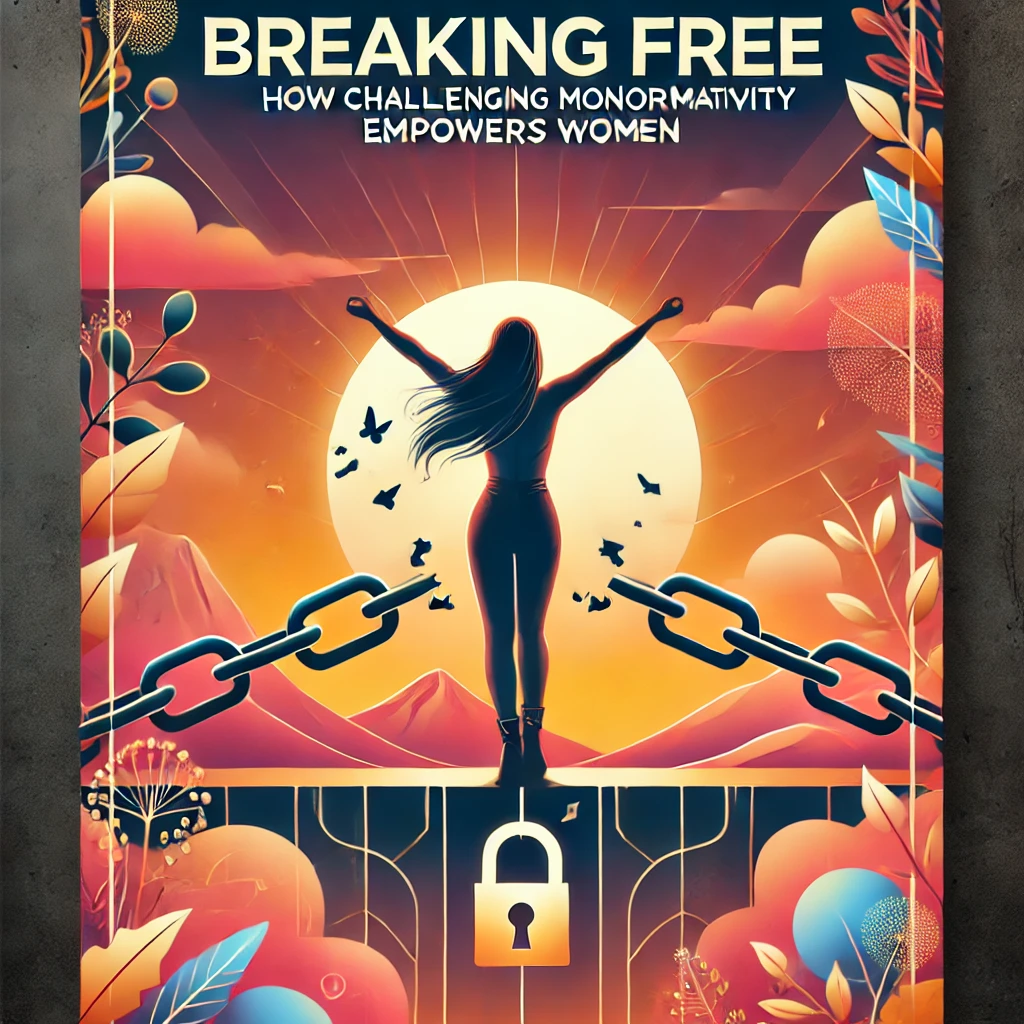Breaking Free: How Challenging Mononormativity Empowers Women

Society tells us there's only one way to love: find "The One," get married, and live happily ever after. This idea, called mononormativity, is so ingrained in our culture that we rarely question it. But what if this narrow view of relationships is actually holding women back?
This article explores how challenging the societal construction of monogamy can be a powerful act of feminist resistance, leading to greater autonomy, sexual freedom, and self-discovery for women.
The Monogamous Trap: Limiting Beliefs and Double Standards
- Monogamy is often presented as the "natural" path for women, fueling the stereotype of women as passive and dependent on men. This narrative limits our aspirations, encouraging us to prioritize finding a partner above other life goals.
- The pervasive "double standard" judges women harshly for sexual behavior that's celebrated in men. Terms like "slut" and "stud" exemplify this hypocrisy, stemming from the patriarchal notion of men owning women's bodies. This restricts women's sexual freedom while simultaneously excusing men's.
- Popular culture reinforces these harmful stereotypes, portraying women's search for love as desperate and all-consuming while depicting men as commitment-phobic "players." This messaging can make women feel inadequate if they don't conform to the monogamous ideal.
The consequences of these limiting beliefs are far-reaching:
- Women may internalize the pressure to find "The One," leading to anxiety, self-doubt, and settling for less in relationships.
- The fear of being labeled "promiscuous" can stifle women's sexual exploration and make them more vulnerable to victim-blaming in cases of sexual assault.
- The legal system often prioritizes the monogamous couple, granting them rights and benefits not afforded to other relationship models. This reinforces the idea that monogamy is the only "legitimate" way to love.
Reclaiming Our Power: Embracing Alternatives and Building New Narratives
Challenging mononormativity isn't about demonizing monogamy. It's about recognizing that one relationship model doesn't fit everyone and empowering women to make choices that align with their desires and values.
Here are some ways we can start dismantling the monogamous trap:
- Question the romantic scripts we've been fed. Is finding "The One" truly the only path to happiness? Can women have fulfilling lives outside of romantic relationships?
- Challenge the double standard and reclaim our sexual agency. We have the right to explore our sexuality without judgment or fear.
- Support and celebrate diverse relationship models. Polyamory, for example, offers a framework for ethical non-monogamy that emphasizes communication, consent, and respect.
By embracing alternatives and building new narratives, we can create a world where women are free to define love and relationships on their terms.
The Polyamorous Example: Lessons in Communication and Empowerment
While not a solution for everyone, the polyamorous movement offers valuable insights into creating more egalitarian and empowering relationship dynamics:
- Polyamory challenges the idea that one person can meet all our needs. It encourages us to cultivate a network of loving relationships, each fulfilling different aspects of our lives.
- Polyamorous relationships often prioritize open communication and negotiation of boundaries. This empowers women to voice their needs and desires, fostering greater respect and understanding within relationships.
- By embracing non-monogamy, women can shed the fear of being labeled "promiscuous" and reclaim their sexual agency. This can lead to greater self-awareness and a deeper understanding of their own desires.
The Path Forward: Creating a Polyamorous Existence, Even Within Monogamy
We can apply the principles of polyamory, such as open communication and challenging limiting beliefs, to any relationship model – even monogamous ones.
By prioritizing:
- Honest and open communication
- Negotiation and respect for boundaries
- Challenging gender stereotypes and double standards
we can create relationships that are more egalitarian, fulfilling, and empowering for everyone involved.
Ultimately, challenging mononormativity is about expanding our understanding of love and relationships, empowering women to make conscious choices, and creating a world where all forms of loving connections are celebrated.
Listen to the Podcast






